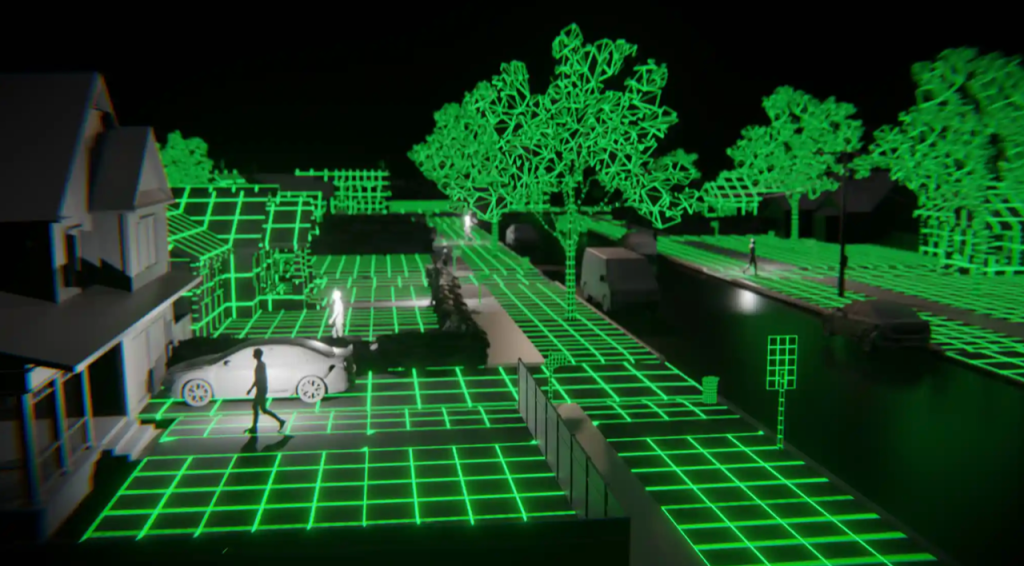Ever watched The Matrix and wondered, “What if?” That “what if” isn’t just science fiction; it’s the core question behind Simulation Theory, a fascinating hypothesis that suggests our entire perceived reality might be an advanced computer simulation.
It’s a mind-bending idea, but one that’s gained traction among philosophers, scientists, and even tech moguls. So, what exactly is it, and what are the arguments for and against it?
The Core Idea: Reality as Code

At its heart, Simulation Theory proposes that our universe, with all its galaxies, stars, planets, and living beings, could be nothing more than a highly sophisticated computer program. Imagine The Sims on an unimaginable scale, or a virtual reality game so advanced that the “characters” within it believe their world is real.
This isn’t just a whimsical thought. The theory was most notably popularized by philosopher Nick Bostrom in 2003. He proposed a “trilemma” that essentially states at least one of these three propositions must be true:
- Almost all civilizations at our stage of development go extinct before becoming “posthuman” (i.e., highly advanced with immense computing power).
- Any posthuman civilization that does emerge is highly unlikely to run a significant number of “ancestor-simulations” (simulations of earlier stages of their civilization).
- We are almost certainly living in a computer simulation.
Bostrom argues that given the potential for future civilizations to possess incredible computing power, and the sheer number of simulations they could run, the statistical probability leans towards us being in one of them.

Two Ways a Simulation Could Work
The theory generally outlines two main possibilities for how a simulated reality might function:
- Everything is Simulated: This scenario suggests that every atom, every particle, every physical law we know is simulated. This would require truly unimaginable computing power – essentially simulating an entire intergalactic universe down to its most fundamental components.
- We are Real, the World is Simulated: This is closer to the Matrix concept. In this version, human consciousness might be “real” (or at least more complex to simulate), but the physical world and many of the other individuals we interact with are simulated constructs designed to fool our senses. This would still demand immense processing power, especially to track the detailed “belief-states” in billions of human brains.
Arguments FOR Simulation Theory
- The “Posthuman” Argument: As technology advances exponentially, it’s plausible that future civilizations could develop the capacity to create incredibly detailed simulations. If they do, and if they have any interest in their history or ancestors, they might run many such simulations. If there are vastly more simulated realities than base realities, the odds favor us being in a simulation.
- Technological Progress: Our own accelerating progress in virtual reality, AI, and computing power makes the concept seem less outlandish. What seems impossible today might be trivial for a civilization thousands or millions of years ahead of us.
- “Glitches in the Matrix”: Some proponents point to unexplained phenomena, mathematical anomalies, or even the fine-tuning of universal constants as potential “clues” or “bugs” in the simulation.
Arguments AGAINST Simulation Theory
- The Computational Barrier: Critics argue that simulating an entire reality, especially one with quantum mechanics and the sheer number of particles in our universe, would require an impossible amount of computing power – far beyond anything we can currently conceive. Even simulating a single quantum computer is currently beyond our capabilities.
- Why Us? If a higher species could simulate anything, why would they choose to simulate our particular reality with all its complexities and, arguably, mundane aspects? What would be the purpose?
- The “Simulation Problem”: If we are in a simulation, what about the reality “above” ours? Is that also a simulation? This could lead to an infinite regress problem, making the theory less explanatory.
- Lack of Empirical Evidence: Ultimately, there’s no concrete, falsifiable evidence to prove or disprove the theory. It remains a philosophical thought experiment.
Why Does It Matter?
Even if we can’t definitively prove or disprove it, pondering Simulation Theory isn’t just an idle intellectual exercise. It forces us to ask profound questions about:
- The Nature of Reality: What is “real” if our perceptions are just inputs?
- Our Purpose: If we are simulated, do we have free will? What is our “program’s” objective?
- Consciousness: What is consciousness, and can it be simulated?
Whether we’re living in a simulation or not, the theory encourages us to look at our existence with a fresh perspective, appreciating the intricate details of what we perceive as reality and pushing the boundaries of what we understand about the universe and ourselves.
What do you think? Are we lines of code in a cosmic computer, or something more? Share your thoughts in the comments below!